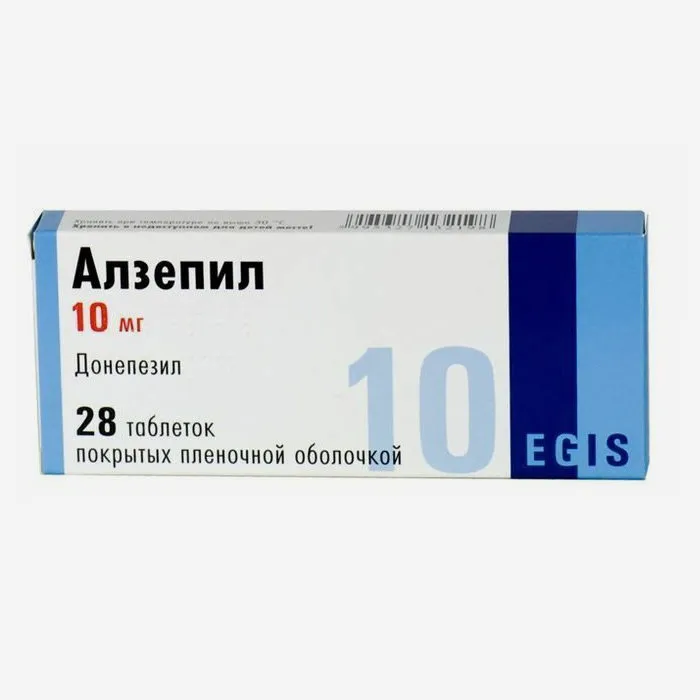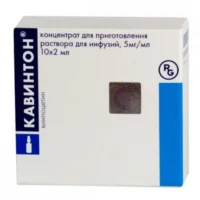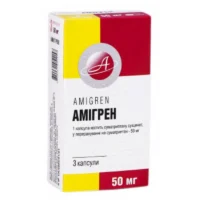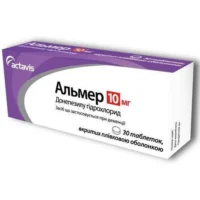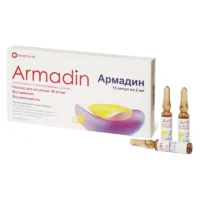Description
Alzepil (Donepezil) Coated Tablets 10 mg. №28
Ingredients
Active ingredient: Donepezil hydrochloride 10 mg.
Dosage
Recommended dosage: The usual starting dose is 5 mg once daily. The dose can be increased to 10 mg once daily after 4-6 weeks.
Indications
Indicated for: Treatment of mild to moderate Alzheimer’s disease.
Contraindications
Do not use if: Hypersensitive to donepezil or other components of the product.
Directions
- Take Alzepil (Donepezil) tablets orally once daily in the evening, with or without food.
- Swallow the tablet whole with water.
Scientific Evidence
Donepezil, the active ingredient in Alzepil tablets, is a reversible inhibitor of acetylcholinesterase. By inhibiting this enzyme, donepezil increases the concentration of acetylcholine in the brain, which is a neurotransmitter involved in cognitive function. This mechanism of action helps improve cognitive symptoms in patients with Alzheimer’s disease.
Clinical trials have demonstrated the efficacy of donepezil in improving cognitive function, global function, and activities of daily living in patients with Alzheimer’s disease. A study published in the American Journal of Alzheimer’s Disease and Other Dementias showed that donepezil treatment was associated with significant cognitive improvement compared to placebo.
Additional Information
- Side effects: Common side effects may include nausea, diarrhea, insomnia, and muscle cramps.
- Storage: Store at room temperature away from moisture and heat.
- Consult a healthcare professional before using this product, especially if you have a history of certain medical conditions or are taking other medications.
Overall, Alzepil (Donepezil) coated tablets 10 mg are a well-established treatment option for individuals with Alzheimer’s disease. The pharmacological effects of donepezil in enhancing cholinergic function have been supported by scientific evidence and clinical trials, making it a valuable therapy in the management of cognitive symptoms associated with this condition.
Compared to similar drugs in its class, donepezil has shown comparable efficacy and safety profiles, with a well-established track record in the treatment of Alzheimer’s disease. Patients prescribed Alzepil tablets can benefit from its proven effectiveness in improving cognitive function and quality of life.

